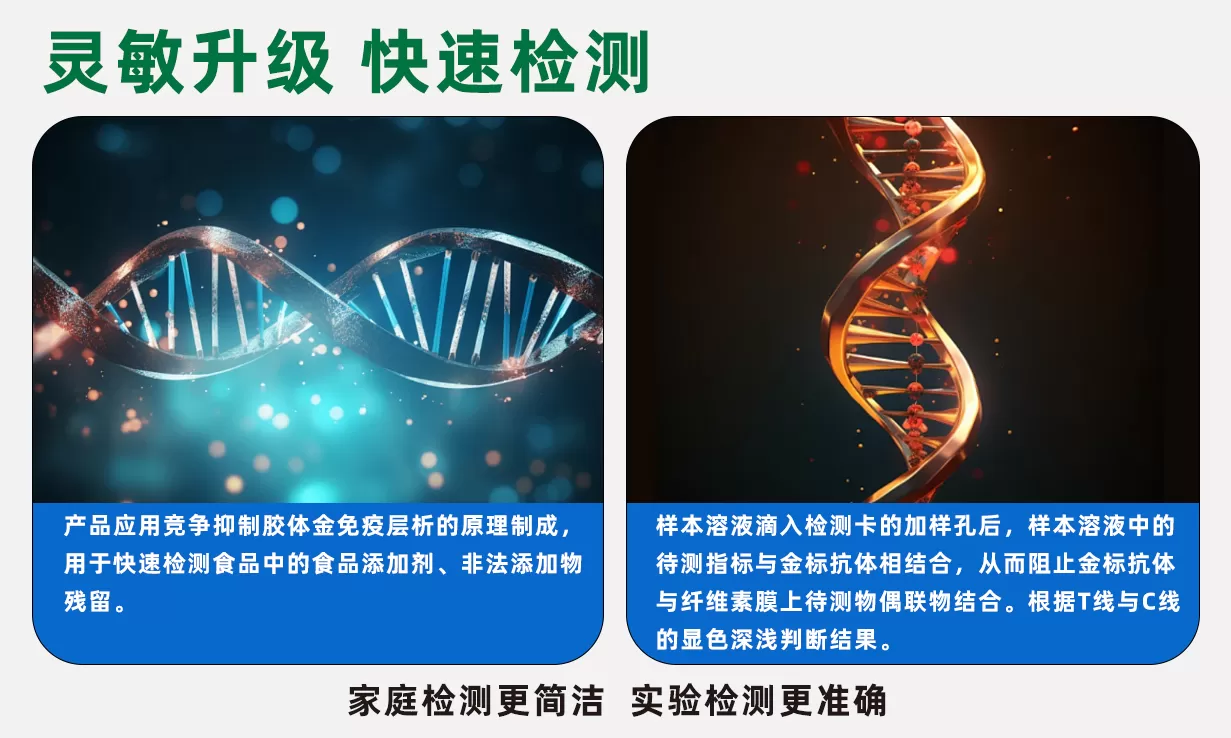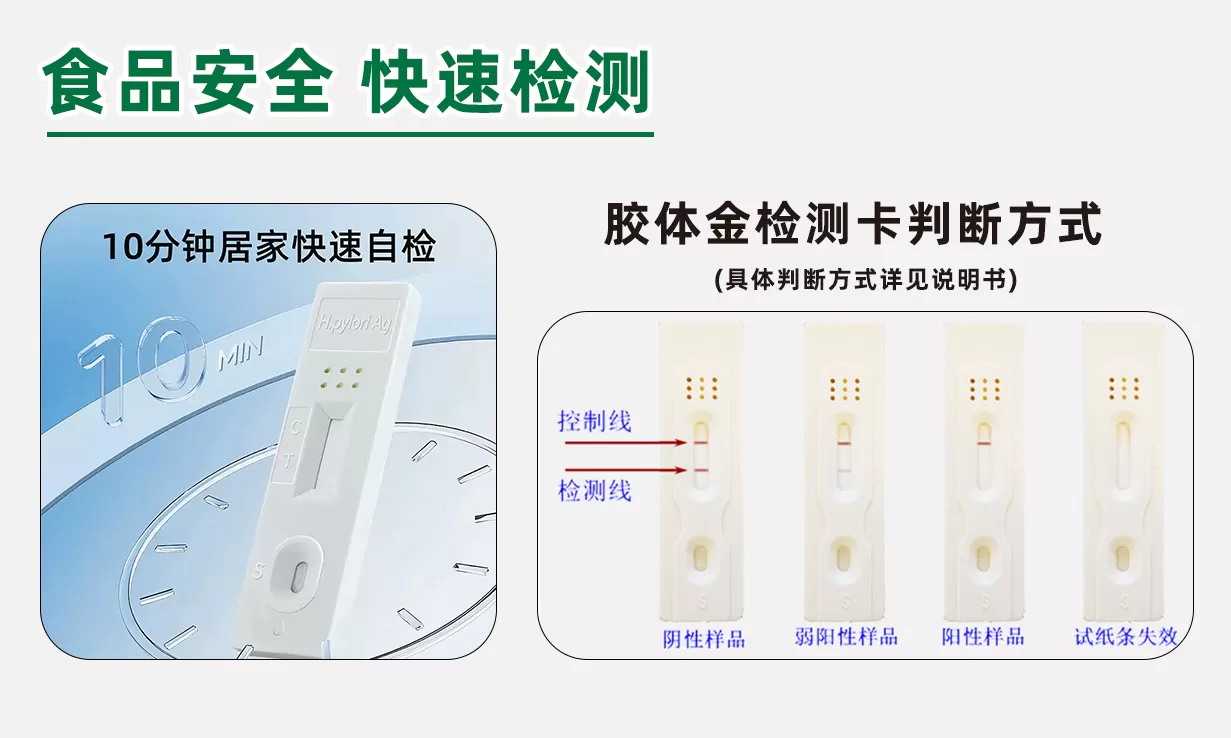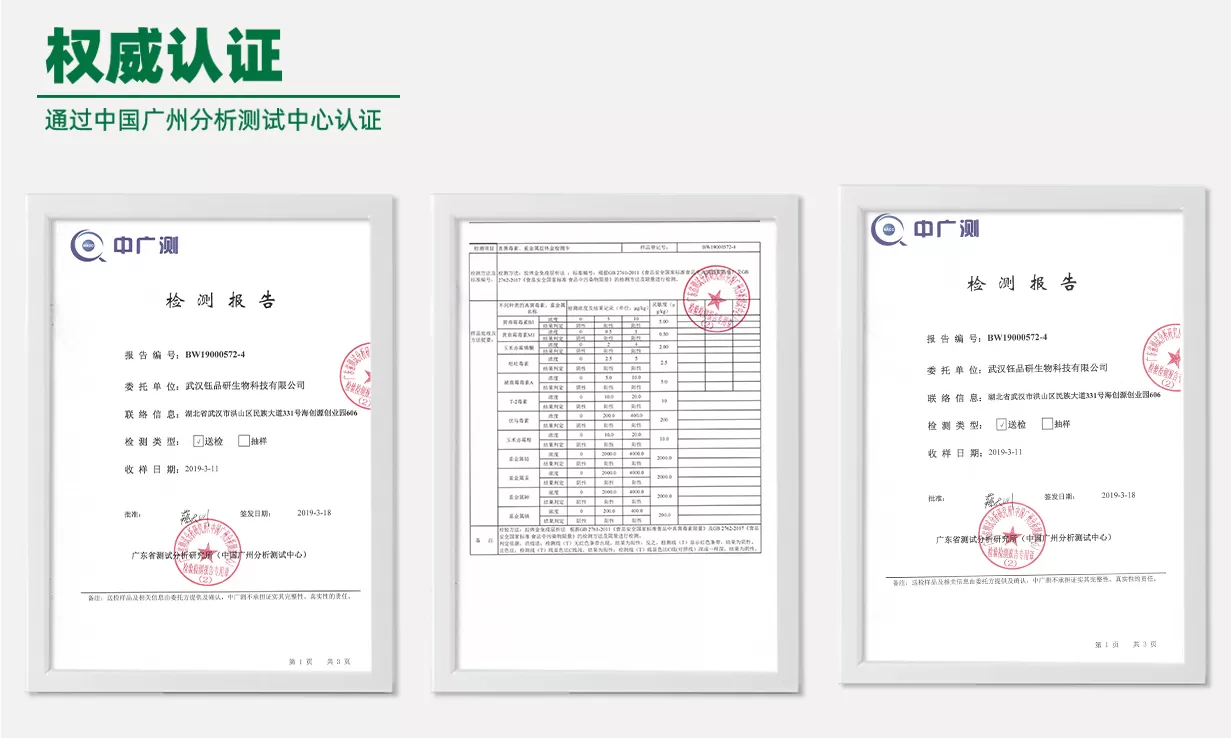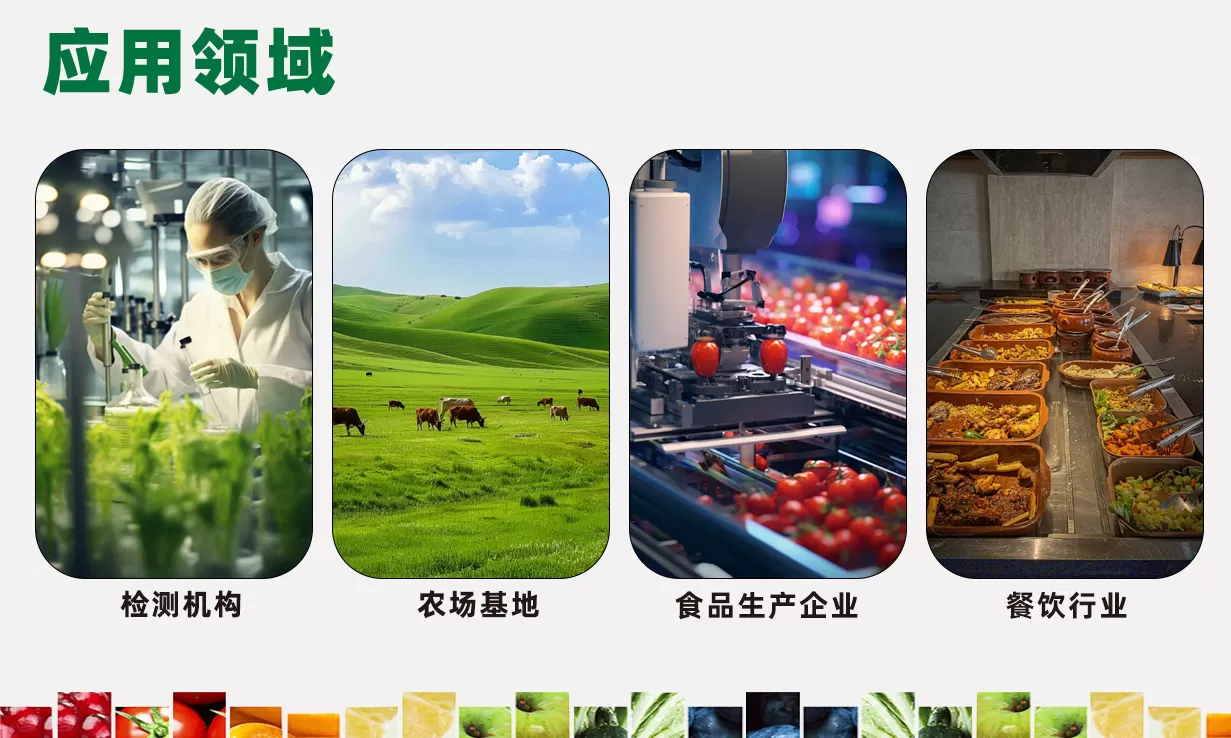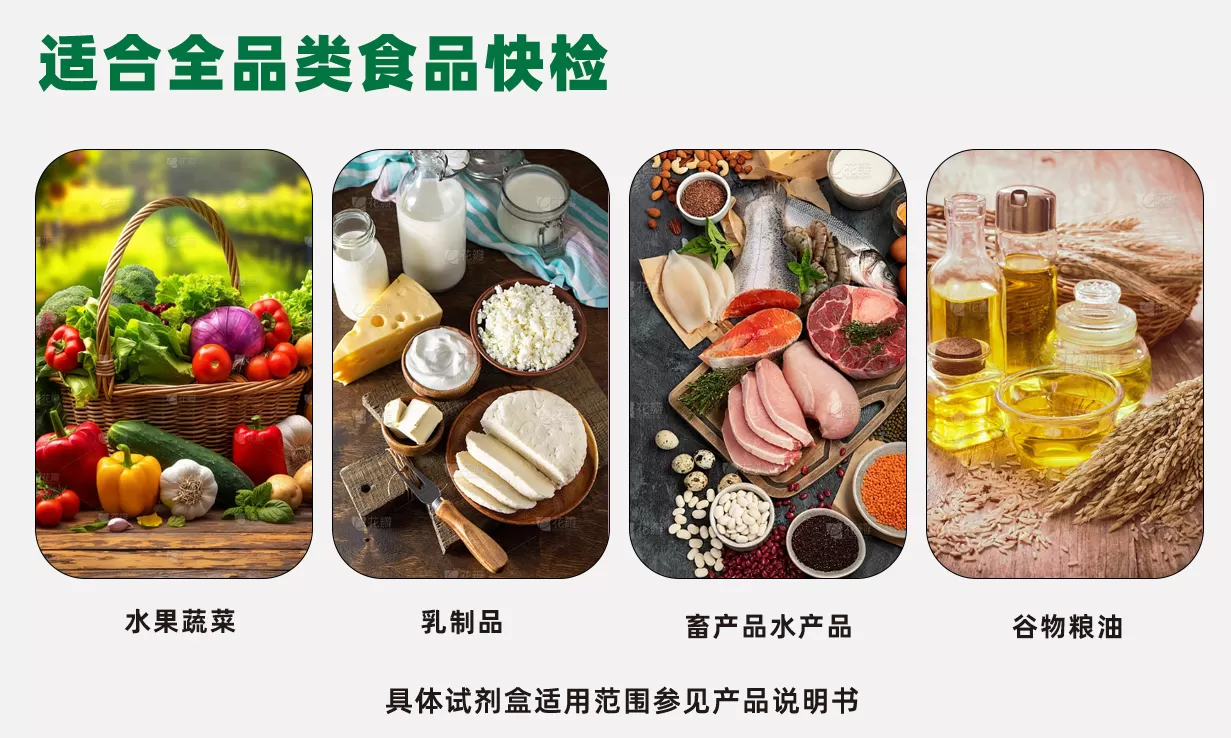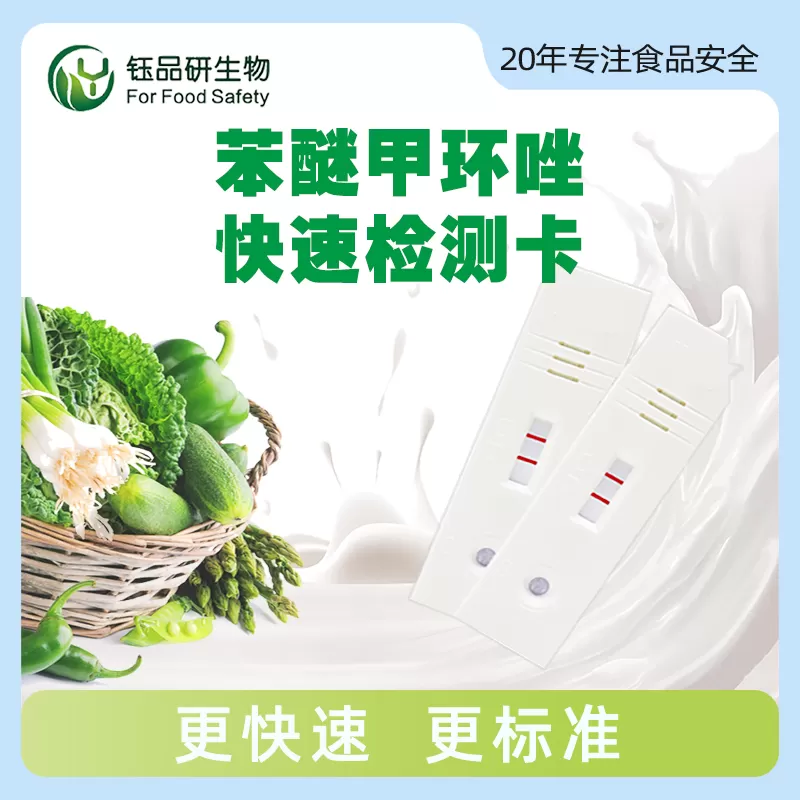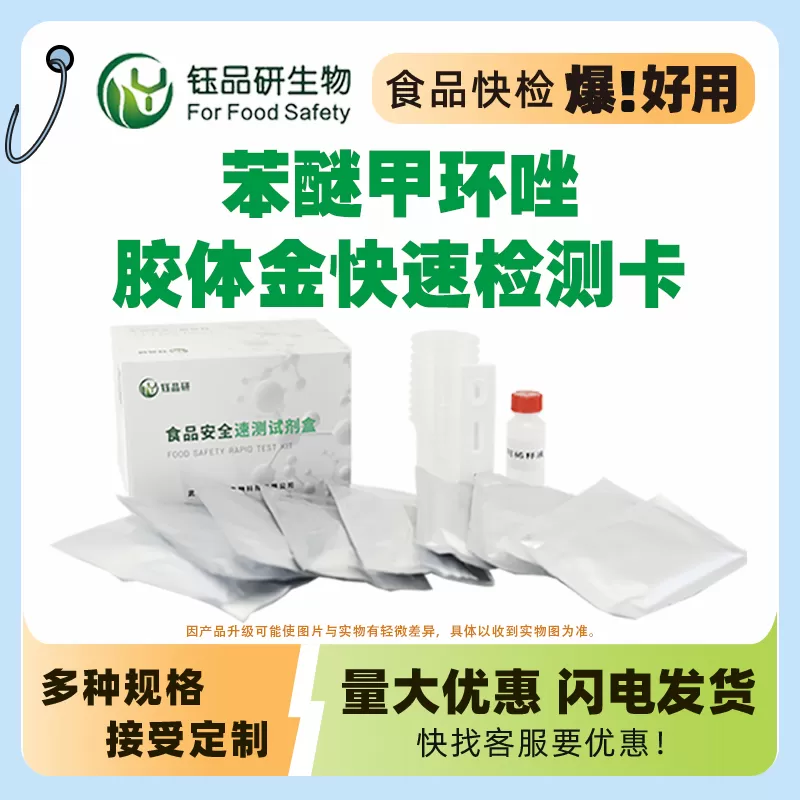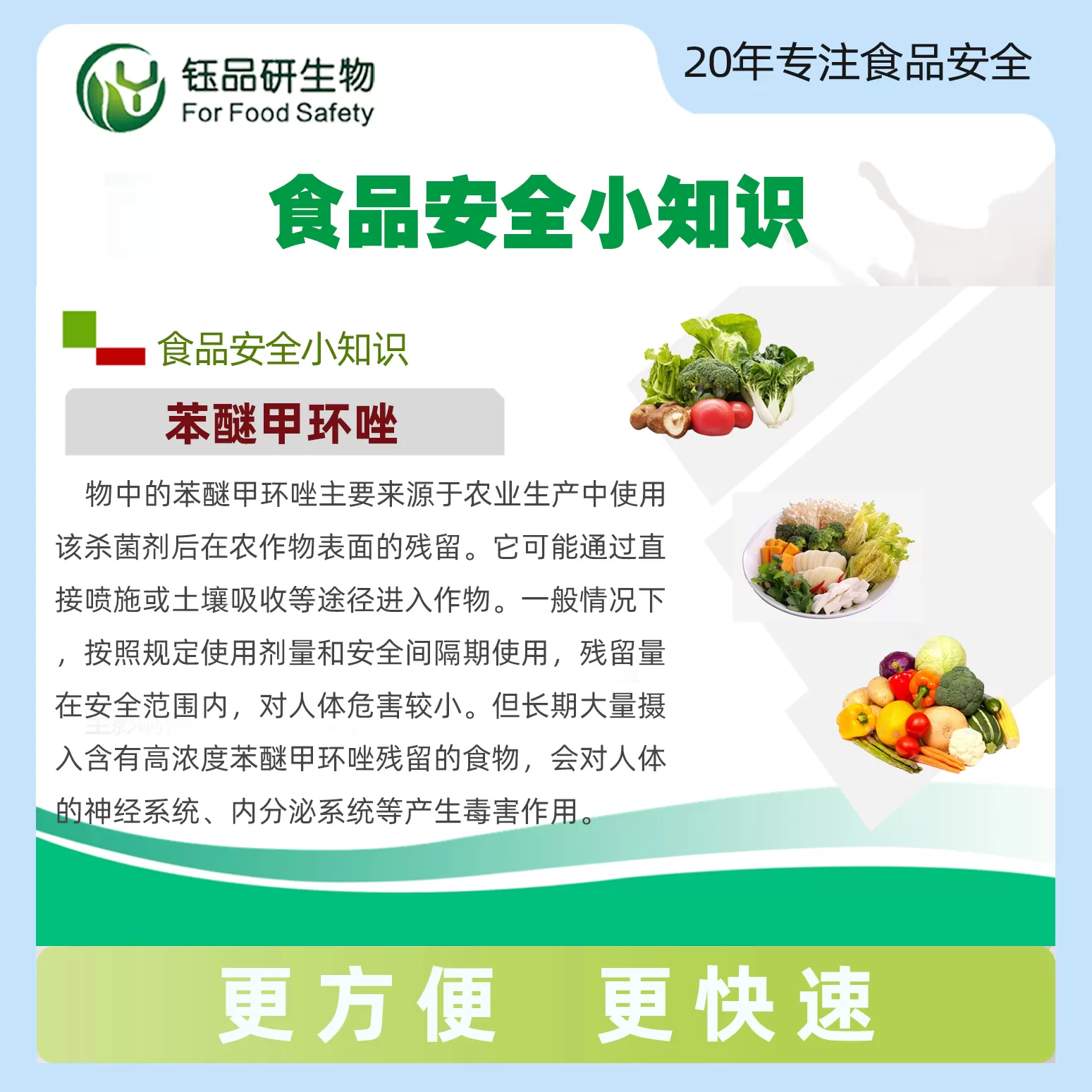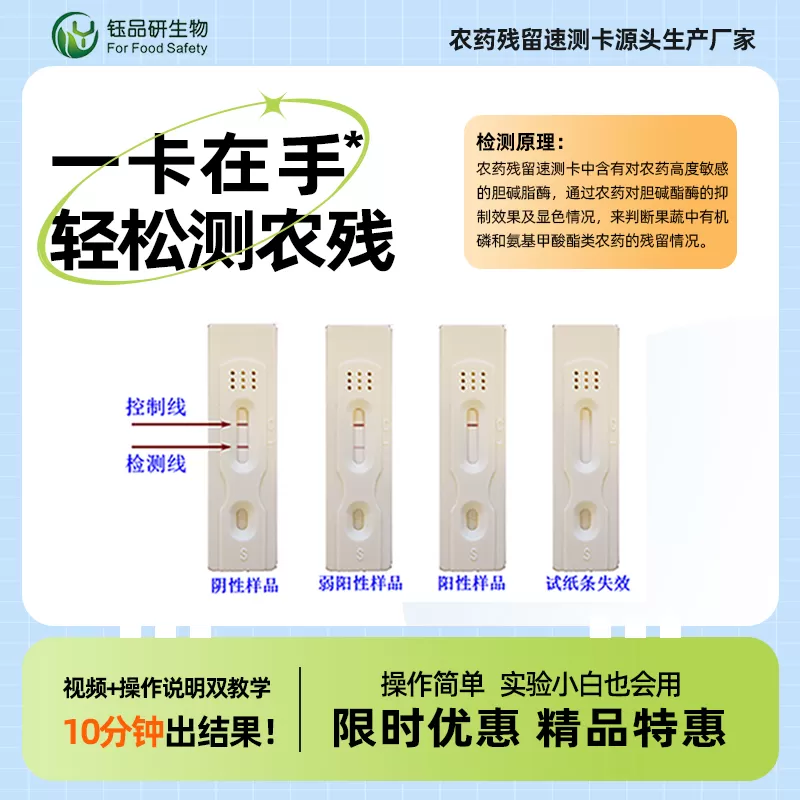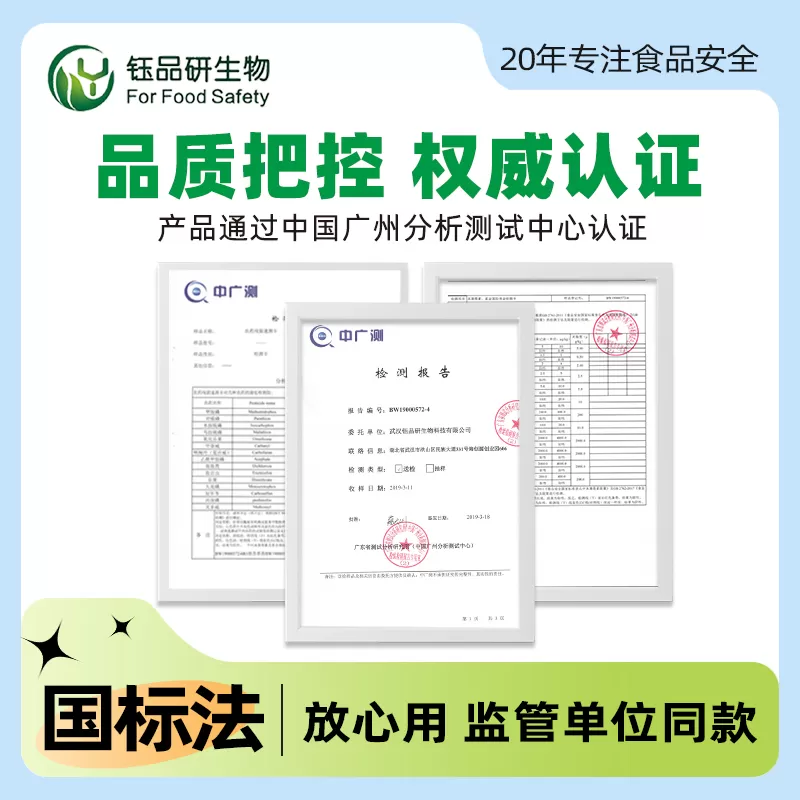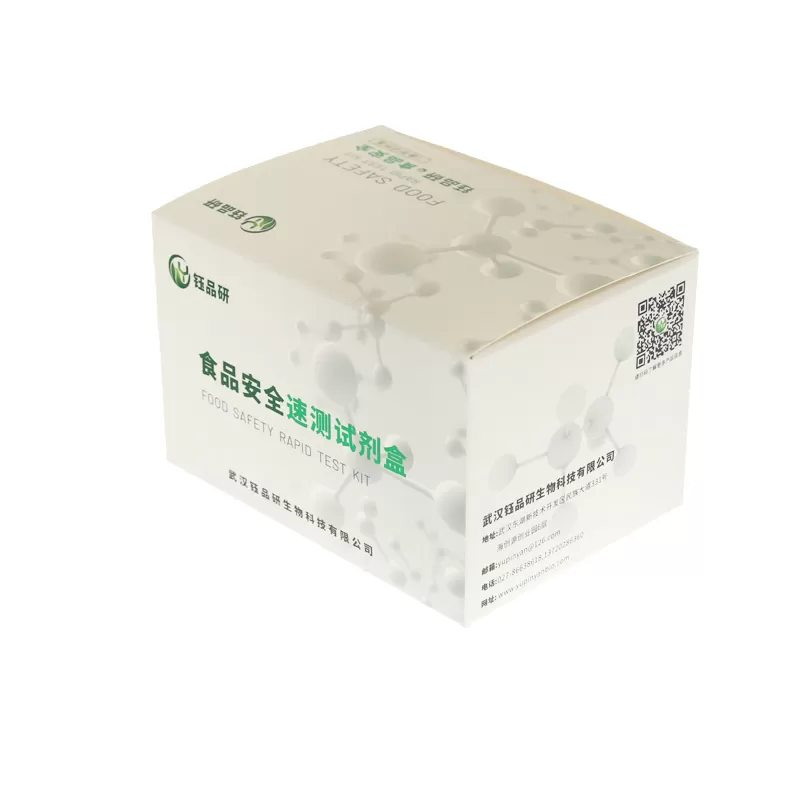Instructions for Instruction
1. Summary
Phenethylmethylmethylmethoxazole is an endotrophic triazole fungicide with a wide bactericidal spectrum, strong endotrophic conductivity, good mixing, rain resistance initialize, and long-lasting efficacy.
2. Detection Principle
This product adopts the principle of competitive inhibition immunochromatography. The phenethylmethylmethylmethylmethylmethylmethylmethylmethylsulfonazole in the sample binds to the specific antibody labeled with colloidal gold, which inhibits the antibody from binding to the antigen on the NC membrane detection line (T-line), resulting in a change in the color depth of the detection line. Whether or not the sample contains phenethylmethylmethylmethylmethylsulfonazole, the quality control line (C-line) will develop color to show that the detection is effective
Third, intended use
Primary screening of fresh vegetables and fruits to ensure that the content of diphenylmethoxazole is not higher than the national standard.
Four, cross-reaction and product performance
Add 10ppm triadimefon, triadimefon, triadimefon, carbofuran is negative;
Five, the minimum detection limit of the sample
0.02mg/kg (ppm)
Six, the main components
Component name
10 parts/box
Component name
10 parts/box
phenyl ether methacyclozole detection card
10 parts
phenyl ether methacyclozole gold standard microporous
1 barrels (10 parts)
general agricultural residue extract
1 bottle
instruction manual
1 parts
seven, storage conditions and valid period
Original
8. Sample requirements
1. Avoid spoilage and deterioration of samples;
2. Avoid large pieces of soil (which can be thrown off or dialed off with other clean items).
9. Test method
Sample pre-treatment
1. Take 20-50g representative sample and chop/cut it up (less than 1 cm square). Weigh 20.05g sample in a 15/50ml centrifuge tube, add 6mL of general-purpose agricultural residue extract, cover it, oscillate the vortex or manually vibrate up and down for 1 minute, and let it stand for 1-2 minutes, which is the sample solution. According to the detection needs, dilute according to the table below, and mix well to be the liquid to be tested.
Note: The following limited execution standards are GB2763-2021, GB 2763.1 - 2022
Sample species
GB 2763 Limited (mg/kg)
Detection limit
(mg/kg)
Sample solution (μL) + extract (μL)
Potato
0. 02
0. 02
200+200
asparagus, bamboo shoots
0. 03
0 03
100+200
passionflower, lily (fresh)
0. 05
0. 05
100+400
winter squash, sweet potato, pomegranate, watermelon
0. 1
0. 1
100+900
garlic, Brussels sprouts, Brussels sprouts, cauliflower, cucumber, carrot, plum, cherry, mango, papaya, pineapple
0. 2
0. 2
50+950
orange, orange, orange
0. 2
0. 2
30+970
leek, zucchini, ginger
0. 3
0. Onion, broccoli, tomato, loof Quince, peach, nectarine, grape, lotus mist, lychee, melon, apricot
0. 5
0 5
20+980
The following samples are first mixed with 50 μL sample solution + 950 μL extract, which is a new sample solution, and then diluted according to the table below.
Sample type
GB 2763 limit (mg/kg)
Detection limit
(mg/kg)
New sample solution (μL) + extract (μL)
Solanaceous vegetables (except tomatoes and peppers), citrus fruits (except oranges, oranges, oranges), avocado
0. 6
0. 6
100+200
pod peas, melons and fruits (except watermelons and melons)
0. 7
0. 7
100+250
Chinese cabbage, peppers, cucumbers, bitter gourds, pumpkins, bananas
1
1
100+400
green onions, leaf/head lettuce, olives, dragon fruit
2
2
100+900
celery
3
3
50+750
kiwi, bayberry, loquat, dates, blueberries
5
5
30+720
spinach, rapeseed
10
10
20+980
watercress
15
15
25+1850
10, sample testing
1, please complete the follow-up test within ten minutes after the treatment of the test solution is completed;
2, please read the Samples and products were restored to room temperature;
3, take 100 μ L of the solution to be tested and add it to the micropores, pump up and down 4-5 times to mix, start the first step of the reaction at 20~ 40 ° C and time 3 minutes;
2, take out the detection card, and place it flat on the desktop to transfer all the liquid in the gold standard micropores to the sample well, and time 6 minutes.
eleven, interpretation of test results
visual:
negative (not detected): T line color than the C line color dark or as deep;
positive (detected): T line color than the C line light or T no color
invalid: C line does not develop color and regardless of whether the T line color.
instrument interpretation: see the instrument instruction manual
twelve, precautions
1, this product is only for qualitative screening, if you need to confirm, please refer to the relevant national standard method.
2, encounter positive samples recommended repeated verification.
3, pre-test sample processing tools such as knives, scissors, stickers should pay attention to cleaning, to avoid cross contamination.
4, detection temperature should be controlled at 17-30 degrees, too high or too low will affect the test results.
5. Before testing, it is recommended that the sample be fully stirred and mixed (if the sample is less, the representative part should be taken, and then the sample should be weighed), so that the test results can more realistically reflect the actual drug residue of the sample.
6, The test standard liquid solvent is the extract, and the water and organic solvent shall not be used as a negative control.
7, Methanol is generally selected for the standard liquid solvent during the verification of the standard, and the final sample is recommended to be 10-50 μL.
8, the reagent of this product is a disposable product, and the waste after use should be treated as a general chemical.
9, the market-related products are complicated, and the quality and performance of each manufacturer are different. Horizontal comparison with congeneric products is not recommended.
10, the reagents involved in this product are safe and reliable, do not contain carcinogenic, highly toxic, flammable, explosive, strong corrosive reagents, but do not eat.
